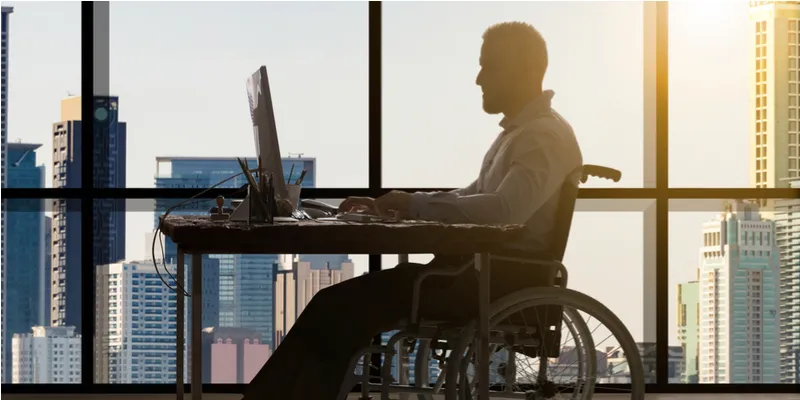Despite path-breaking legislations, persons with disabilities remain excluded from all rights-based discourses, other human rights movements, and mainstream development agenda.

Another World Disability Day has gone by and a fresh set of promises has been made. Those working in the sector, however, are the ones who will keep track of what gets implemented.
This World Disability Day was special on many counts. It marked the 70th anniversary of the Universal Declaration of Human Rights. We are also just round the corner from the second anniversary of the enactment of the RPWD Act, in December 2016.
Despite all these pathbreaking legislations, persons with disabilities remain excluded from all rights-based discourses, other human rights movements, and mainstream development agenda. For a world that believes that all human beings are born equal in dignity and rights, we do a volte-face when it comes to disability! The fragmentation and the acute lack of awareness about issues concerning people with disabilities remain appalling. For example, when did you last travel with a disabled person sitting next to you in local transport?
This brings me back to our slogan #NothingAboutUsWithoutUs, and the imperative that unless we, the people with disabilities, take control, take a leadership role, and push for a due realisation of our rights, collaborating where we can and confronting where we must, we will continue to remain, recipients of charity and dole,.
Granted, that the momentum is better than it was a decade ago. But the fundamental bias towards persons with disability remains. This, despite the fact that the blind are flying planes today! Miles Hilton-Barber, a Britisher flew half-way around the world at 57, even though he was completely blind. He navigated a microlight London to Australia using “talking” computer software.
Understanding the heights of achievement that persons with disabilities can reach requires a mindset change. What this means is that if you provide equal opportunities and reasonable accommodation, all jobs are suitable for persons with disabilities. Yes, it is true that everybody can't do everything, but we know of autistic persons involved in software testing.
To commemorate WDD 2018, we launched a manual, in partnership with the American Indian Foundation (AIF), explaining the Rights of Persons with Disabilities (RPWD) Act, 2016. We believe that understanding and implementing this Act will be a game-changer for the estimated 70-100 million disabled citizens of India, and help move the discourse away from charity to one that is rights-based.
Split into 26 chapters, the manual is an exhaustive labour of love and covers a gamut of topics such as classifications of disabilities and certification, equality and non-discrimination, women and children with disabilities, community life, protection from cruelty, inhuman treatment, abuse, violence and exploitation, disaster management, home and family, accessibility in voting , access to justice, legal capacity and guardianship, education, non-discrimination in employment (government and private sector), self-employment, skill development, social security, and many other issues.
We have dedicated this comprehensive document to Javed Abidi, the chief architect of the disability movement in India, and Founder of NCPEDP. We are conscious, that everything we do, whether it is the Helen Keller Awards or the walk to freedom, our message is simple: we need a collective voice for the inclusion of persons with disabilities. We envisage a world where one’s ability, nor disability, defines an individual.
(Disclaimer: The views and opinions expressed in this article are those of the author and do not necessarily reflect the views of YourStory.)







